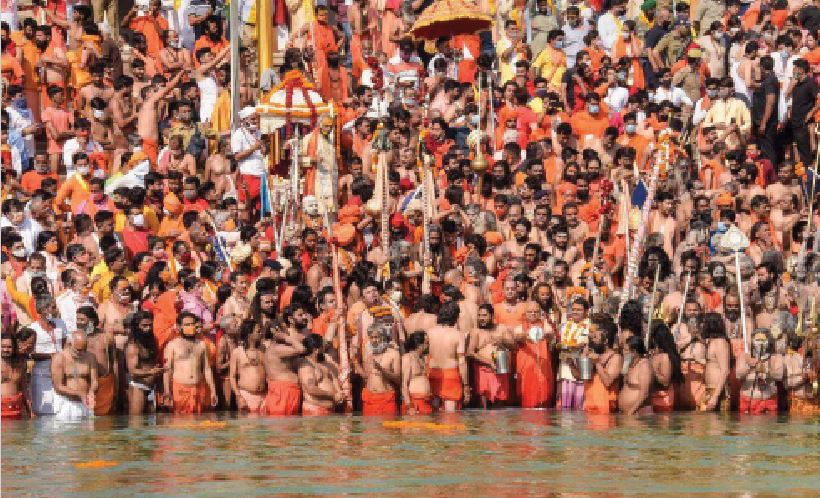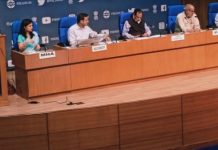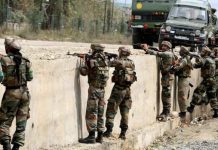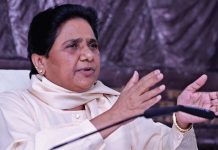 Rising Covid positive cases and number of deaths, shortage of hospital beds with ventilator, black marketing of key drug Remdesivir, shortage of medical oxygen to treat critical patients and shortage of space and wood to cremate the dead bodies highlight that the situation across the country has worsened, reports AMIT AGNIHOTRI
Rising Covid positive cases and number of deaths, shortage of hospital beds with ventilator, black marketing of key drug Remdesivir, shortage of medical oxygen to treat critical patients and shortage of space and wood to cremate the dead bodies highlight that the situation across the country has worsened, reports AMIT AGNIHOTRI
The second wave of Covid-19 ravaged India as lakhs of citizens got infected per day, thousands lost their lives either due to complications or lack of medical facilities, mainly oxygen and dead bodies piled up at cremation grounds for lack of space and fire wood.
The Opposition charged the government of mismanaging the pandemic as shortage of oxygen continued despite the Centre mobilizing oxygen tankers from various parts of the country and even flying in several plants from abroad forcing people had to run from pillar to post to get a hospital bed and medical oxygen, which came in short supply all across the country, especially in the national capital.
Horrifying visuals of people suffering from the pandemic aired on TV news channels television and reports of black marketing of key drug Remdesivir along with shortage of the vaccines, angered and anguished the public even as the country’s healthcare system was overwhelmed by the crisis.
For the first time on May 1, the per day count of Covid positive cases crossed the 4- lakh mark while experts projected the infections could peak by May 5.
Over the last nine days of April, around 3 lakh cases per day were reported which showed an increase from one lakh cases per day reported around the first week of April.
According to the union health ministry, the country’s Covid tally crossed 190-lakh on May 1 while 3,523 deaths were recorded on April 30. However, some experts claimed the actual numbers would be much higher as correct data was not available.
The opposition charged the government did not take lessons from 2020 when the pandemic had hit the country for the first time.
Congress chief Sonia Gandhi urged the Centre to “wake up” even as the Delhi High Court fumed “enough is enough” over the continuing oxygen shortage in the national capital which killed several critical patients in various hospitals.
Congress spokesperson Ajay Maken wondered why the Centre failed to anticipate the return of Coronavirus even after seeing global examples.
“Why we failed to anticipate the second wave despite it being a global phenomenon and why we doubled the Oxygen export in year 2020-21 in comparison to year 2019-20 despite it being a crucial resource in treating critically-ill coronavirus patients,” Maken asked. “Why is it that in many places including the national capital, it is taking 3 to 7 days to get a report for Covid and why we wasted 15 months and failed to set up adequate health infrastructure, despite getting adequate time,” he said.
India had declared the pandemic to be a “disaster” on March 14, 2020 and 10 days later, over a billion people were put under the world’s most severe lockdown, with the government arguing it needed time to expand the country’s healthcare capacity.
“It is high time that we effectively analyse the improvements, if any, made in this direction,” said Maken.
Citing PM Modi’s April 17, 2021 statement that “We won the war against Coronavirus last year and we will win the war this year” another Congress leader Jairam Ramesh wondered, “which war did they win last year? Was Corona defeated last year?”
Besides the shortage of ICU beds and oxygen, the residents had to battle bureaucratic apathy as they were made to run around to get permissions from designated medical authorities to get admitted to a hospital.
Even Union minister VK Singh had to tweet to Ghaziabad DM to get a hospital bed for his brother, forcing many to wonder what must have been the plight of ordinary citizens.
As the case of hospitals grappling with shortage of medical oxygen reached the various High Courts, the Supreme Court intervened in the matter and asked the Centre to submit a plan to deal with the national emergency.
The top court was concerned over six High Courts hearing related petitions involving the shortage of oxygen, beds and the anti-viral drug Remdesivir in hospitals across the country.
“We want to see the national plan on this issue,” former Chief Justice of India SA Bobde said a few days before he retired.
The Delhi High Court, which heard the pleas of the state and the Centre, expressed “shock and dismay” over the government’s handling of the oxygen crisis and directed the Centre to “beg, borrow, steal” to ensure enough oxygen supply for hospitals.
“The citizen can only fall back on the state. It is the responsibility of the government. Beg… borrow… or steal, it is your job…How is the government so oblivious of the reality on the ground? You cannot have people die because of no oxygen. You take your own sweet time and people die,” the Delhi High Court said.
Eventually, the court asked the Centre to arrange oxygen supplies needed in Delhi as it pulled up the Kejriwal government.
The Supreme Court also warned the state governments of action if they tried to clampdown on information or sharing of grievances on social media.
“If citizens communicate their grievances on social media, we do not want a clampdown on information. We will treat this as contempt if any citizen is harassed if they want bed or oxygen,” Justice DY Chandrachud said while hearing a case.
The observations of the top court came after the Election Commission, which had been severely reprimanded by the Madras High Court over mismanaging assembly polls, urged the court to restrain the media from reporting its oral observations as the comments tarnished its image.
The Congress alleged the Centre ignored early warnings given by former party chief Rahul Gandhi and dubbed him an agent of international vaccine manufacturers when he asked the government to allow more vaccines but did exactly the same later.
The Centre also rubbished the suggestions given by former prime minister Manmohan Singh. Congress leader Priyanka Gandhi Vadra slammed Union health minister Harsh Vardhan, who, while responding to Manmohan Singh’s letter, alleged that the second wave of the pandemic was fuelled by Congress-ruled states as they were busy raising doubts about vaccines rather than vaccinating people.
Priyanka also slammed Union railway minister Piyush Goyal’s statement that states must keep oxygen demand under control, saying it was a heartless comment and showed brutal coldness at the heart of the administration.
Rahul, who tested Covid positive and cancelled his West Bengal campaign, was ridiculed by the BJP leaders who said he had accepted defeat. However, a few days later PM Modi too was forced to cancel his rallies in the eastern state due to the worsening pandemic situation.
“I am quarantined at home and sad news is constantly coming in. The crisis in India is not just due to Corona, but due to the anti-people policies of the central government. Don’t give false celebrations and hollow speeches, give the country a solution,” Rahul tweeted in Hindi.
Faced with opposition’s criticism that he was busy campaigning in West Bengal as the pandemic spread across the country, PM Modi got into a huddle with senior officials to control damage and announced a slew of measures which the Congress said were too little, too late.
“GoI, this is on you,” Rahul, who blamed the Centre for deaths due to oxygen shortage and shortage of ICU beds, said.
The government banned sale of oxygen for industrial use, urged manufacturers to ramp up production, roped in Railways to transport oxygen tankers, decided to airlift 23 oxygen plants from Germany and even set up a control room to coordinate supply of gas to the hospitals.
Some big corporations too offered oxygen from their plants for use in hospitals but still several precious lives were lost due to shortage of medical oxygen at the hospitals.To deal with the worsening situation, the government granted emergency financial powers to the armed forces to augment their efforts in the battle against the pandemic. These new powers will help them operate facilities, procure equipment and resources, and perform any required urgent tasks.
Several nations, including the United States, the United Kingdom, China, Japan also came out to help India deal with the crisis. Alarmed over the developments, several countries like the United States, the UK and Australia restricted travel from India. Australia even warned of a five-year jail term for those who defied the new rule.
Vaccine policy Under pressure from the opposition, the Centre revised its policy of vaccinating only those above 45 years and opened the drive for all above 18 years from May 1 and urged vaccine manufacturers to step up production to meet the shortfall.
But the rider was that all those under 45 years will only be able to get the doses after the private sales start or if the state government procure stocks for distribution.
Picking holes in the modified vaccine policy, which led to Serum Institute of India come out with a revised, three-level pricing for its anti-Covid drug Covishield, Congress chief Sonia Gandhi wrote an angry letter to the PM.
Referring to the differential price 150 per dose for the Centre, 400 for state governments and 600 for private hospitals, Sonia said, “In these unprecedented times, how can the government of India permit such brazen profiteering from people’s misery? At a time when medical resources are scarce, hospital beds are unavailable, oxygen supply and availability of essential medicine is dwindling rapidly, why is your government allowing a policy that reeks of such insensitivity.”
The Congress chief alleged that Centre had abdicated its responsibility to provide free vaccination for people in the age group of 18 to 45 years and reiterated that the allocation to state governments should be “transparent and equitable, in line with the spirit of cooperative federalism.”
West Bengal chief minister Mamata Banerjee, who had earmarked 100 crores to fund the state’s vaccination drive for all from May 1, too slammed the Centre.
“One nation, one party, one leader shouts BJP all the time but to save lives they can’t have one price for vaccines. Every Indian needs a free vaccine, regardless of age, caste, creed, location. GoI must fix ONE price for Covid vaccine irrespective of who pays — Centre or the States,” Banerjee tweeted.
Earlier, she blamed the PM for rising Covid cases in the country and sought his resignation. Banerjee also said the state government had not received a response from the PM on its demand for 5.4 crore doses to vaccinate every resident of the state free of cost. As a mark of protest, Banerjee did not attend a meeting that the PM took with various chief ministers to deal with the health emergency.
BSP chief Mayawati also criticised the multi-pricing of vaccines and urged the Centre to intervene in the matter even as badly-hit Maharashtra chief minister Uddhav Thackeray sought more oxygen and vaccines to deal with the crisis. Besides, SII’s Covishield, Bharat Biotech’s Covaxin and Russia’s Sputnik V, manufactured by Dr Reddy’s Labs are approved in India. Globally, American vaccines in the open market currently cost about 1,500 per dose while Russian and Chinese vaccines cost around 750 per dose. The Supreme Court too questioned the Centre over different prices of vaccines.
“Why is the government not buying 100 per cent of doses produced at this time? Why should there be two prices for the centre and the states… what is the rationale?” the apex court asked. Later, when they faced public criticism, the SII slashed the price of Covishield from 400 per dose to 300 per dose for the states while Bharat Biotech announced its vaccine Covaxin would be sold to the states for 400 per dose instead of the 600 announced earlier. Both companies will sell vaccines to the Centre at 150 per dose. Interestingly, on a day the country started the third phase of vaccination for all those above 18 years of age, several states like Delhi, Maharashtra, Tamil Nadu, Bengal, Kerala, Rajasthan, Madhya Pradesh reported low stocks of the vaccines.
Delhi Chief Minister Arvind Kejriwal urged citizens not to queue up for vaccine shots. “Don’t queue up for vaccines tomorrow. As soon as vaccines arrive, we will let you know,” he said, adding that Delhi was set to receive around 3 lakh Covishield doses by May 2. “Both vaccine makers (Serum Institute and Bharat Biotech) will give us 67 lakh doses each over next two months,” Kejriwal said.
But the Centre countered them. Union health minister Harsh Vardhan said over 2.45 crore people had registered themselves on Co-Win, the government’s registration website, for the third phase.The centre has provided “more than 16.33 crore Covid vaccine doses to states and union territories for free,” Dr Harsh Vardhan said in a tweet stressing that “more than 1 crore doses are still available in stocks with them”. Of this, “the total consumption including wastages is 15,33,56,503 doses”, an official statement said.
Earlier, PM Modi had urged the states to observe vaccine festival, “tika utsav” to safeguard the population but by May 1 only around 15 cr of the total 130 cr Indians had been given the shots showing the huge gap.
Former finance minister P Chidambaram charged the central government of running away from responsibility and said the Congress would have handled the crisis differently.
“The government appears to have abdicated its responsibility towards the poor by excluding them from the central government’s vaccination programme. The states will bear the responsibility and cost of vaccinating the poorer sections who are below the age of 45 years and are neither health care workers nor frontline workers, as defined by the central government. Nowhere in the world has any government left its vaccination programme to be determined by the vagaries of market forces, and for good reason,” said Chidambaram.
“It can’t be a single person decision making system as it is today. We would have constantly consulted the state governments about sharing the financial burden. There is nothing free. Everything has a cost. Who will bear the cost?” said the former finance minister.
The former FM urged the Centre to help the poor deal with the impact of the crisis.
“Most importantly, we would have provided 6,000 per poor family per month until they tide over the pandemic crisis and if necessary, would have borrowed This government is not willing to borrow, not willing to spend, yet, it is showing a huge fiscal deficit. They have completely misplaced priorities to borrow and spend to tackle the gravest health emergency and crisis faced for this country since
Independence,” he said.Congress leader Jairam Ramesh urged the Centre to have one pricing policy for the vaccines saying the states were under financial strain.
“The states are in a very precarious financial position. Their GST compensation is being delayed. So, to expect that the states are going to be in a position to bear additional financial burden over and above what they are bearing and clearly yesterday’s policy is going to put a huge financial responsibility on an already overstretched state governments,” said Ramesh.
He pointed out that India is today the world’s largest vaccine producer because of policies that have been followed since the mid1980s.
Citing Israel, which has used compulsory licensing for Covid, Ramesh said there is no reason why the Centre can’t take note of Manmohan Singh’s suggestion and enhance vaccine manufacturing capacity. Later, even the top court made similar suggestions.
As the government kept listing the number of persons vaccinated to pat itself on the back, Congress leader Ajay Maken asked the PM to explain why only 2 percent of Indians had so far been fully vaccinated and why despite having a surplus of oxygen, the government was unable to supply medical oxygen to the hospitals.
Noting that it had become clear that oxygen would be one of the most precious commodities in the battle against the Coronavirus, he wondered why the central government took eight months to invite bids for onsite oxygen generation plants.
“It was only on October 21, 2020 the Central Medical Services Society, an autonomous institution under the Union health ministry, floated a tender online calling for bidders to establish Pressure Swing Adsorption oxygen plants in 150 (12 plants were added later taking it to 162) district hospitals across the country- the total outlay of which was just 201.58 crores. After 13 months of the pandemic being declared a ‘disaster’ under NDMA, only 32 out of 162 planned are ready so far,” said Maken. According to the Congress leader, on April 15, 2021 the government said that India’s production capacity of oxygen was 7127 MT per day and on April 12, the medical oxygen consumption was 3842 MT per day.
“It is estimated that the medical oxygen requirement may go up to 4500 to 5500 MT per day,” he said, adding “the problem is not availability as such, but that of logistics and management. We need cryogenic tankers to transport oxygen. Hospitals do not have adequate storage capacity. It took 15 months for the government to change rules and allow cryogenic tankers licensed to carry nitrogen to also carry oxygen, and a week later they issued guidelines for unrestricted movement of tankers.”
Listing the Centre’s major lapses, Maken said oxygen was allowed to be exported, after 15 months of pandemic, only 32 of 162 PSA units have been established so far, it took the government 15 months to change the rules for adding nitrogen licensed cryogenic tankers and allow unrestricted movement and the administration failed to plan and augment the hospital oxygen storage capacity.
The Congress leader further charged that as the second wave of Coronavirus peaked in other countries, instead of preparing for the second wave over the past 6 months, India exported 1.1 million injections of Remdesivir and the export was stopped around mid-April.
“Stockists and traders have been hoarding large quantities and selling them at exorbitant prices. A lot of stock which was earmarked for export has got diverted to the black market. BJP leaders are involved in hoarding and black marketing,” he said.
Maken cited Rajasthan government’s decision to reduce the RT-PCR test rate to 350 and cap the HRCT scan rate at 1700 and urged the Centre to apply the same rates across the country to benefit the common man.
tehelkaletters@gmail.com













